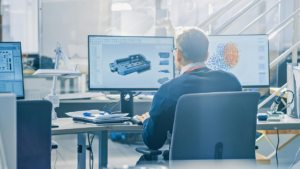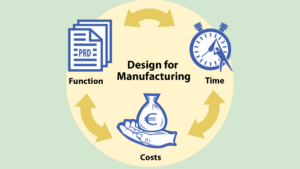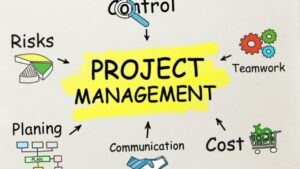Consumers demand faster turnaround times, lower prices, and consistent product quality. This puts pressure on manufacturers to optimize their production processes and find ways to do more with less. Automation has emerged as a powerful tool for achieving these goals.
What is Automation and Why is it Important?
Automation refers to the use of technology to replace manual tasks within a factory setting. This can involve robots performing assembly line functions, computer-controlled machines handling repetitive processes, or automated inventory management systems. By implementing automation, manufacturers can:
- Increase Productivity: Automated machines can operate 24/7, significantly increasing output compared to manual labor alone.
- Reduce Labor Costs: While automation requires an initial investment, it can reduce reliance on human labor, leading to long-term cost savings.
- Improve Quality Control: Automated machines can perform tasks with greater precision and consistency, minimizing human error and ensuring consistent product quality.
- Enhance Safety: Automation can take over dangerous tasks, reducing workplace injuries and improving overall safety for human workers.
However, some manufacturers might be hesitant to embrace automation due to perceived upfront costs. Let’s explore the hidden costs associated with NOT automating your factory.
We discussed the benefits of automation in manufacturing, highlighting its potential to increase productivity, reduce costs, improve quality control, and enhance workplace safety. Now, let’s delve into the hidden costs associated with not automating your factory and explore why efficiency matters in today’s competitive landscape.
The High Price of Manual Processes:
While the initial investment in automation technology might seem daunting, the long-term costs of sticking with manual processes can be even higher. Here’s a closer look at some hidden expenses to consider:
- Reduced Productivity: Manual labor is inherently slower and more prone to fatigue than automated systems. This translates to lower production output and potentially missed deadlines.
- Increased Labor Costs: In today’s job market, skilled labor can be expensive. Relying solely on manual labor drives up payroll costs, impacting your overall production budget.
- Quality Control Issues: Human error is inevitable in manual processes. This can lead to inconsistencies in product quality, potentially resulting in rework, scrap materials, and customer dissatisfaction.
- Safety Concerns: Repetitive manual tasks can lead to worker fatigue and injuries. Automating these tasks can improve workplace safety and reduce associated costs.
- Loss of Competitive Advantage: In a fast-paced market, efficiency is key. Manufacturers who fail to automate risk falling behind competitors who can produce higher volumes at lower costs.
Investing in Efficiency Now Saves You Money Later:
By embracing automation, you can transform these hidden costs into long-term savings. Here’s how:
- Increased Throughput: Automated systems can operate continuously, leading to higher production volumes and faster turnaround times.
- Reduced Labor Costs: Automation can free up human workers to focus on higher-value tasks, potentially leading to a smaller workforce and lower payroll expenses.
- Improved Quality Control: Automated machines perform tasks with greater precision, resulting in fewer defects and reduced waste.
- Enhanced Safety: Automating dangerous tasks minimizes the risk of workplace injuries and associated costs.
- Stronger Competitive Edge: Automation helps you produce high-quality products efficiently, allowing you to compete effectively in the market.
Investing in automation is an investment in your future. By embracing efficiency, you can:
- Boost your bottom line through increased productivity and cost savings.
- Enhance your product quality and reputation for consistent excellence.
- Improve workplace safety and employee well-being.
- Gain a competitive edge in the market and achieve long-term success.
Ready to unlock the power of automation and transform your factory?
Here at MARS Manufacturing Solutions, we are at the forefront of automation technology. We offer a comprehensive suite of automation solutions, from robotic integration to automated material handling systems. Our team of experienced engineers can help you assess your needs, develop a customized automation plan, and guide you through every step of the process.
Contact MARS Manufacturing Solutions today and let’s discuss how we can help you optimize your factory, unlock the true potential of your business, and achieve your manufacturing goals!






